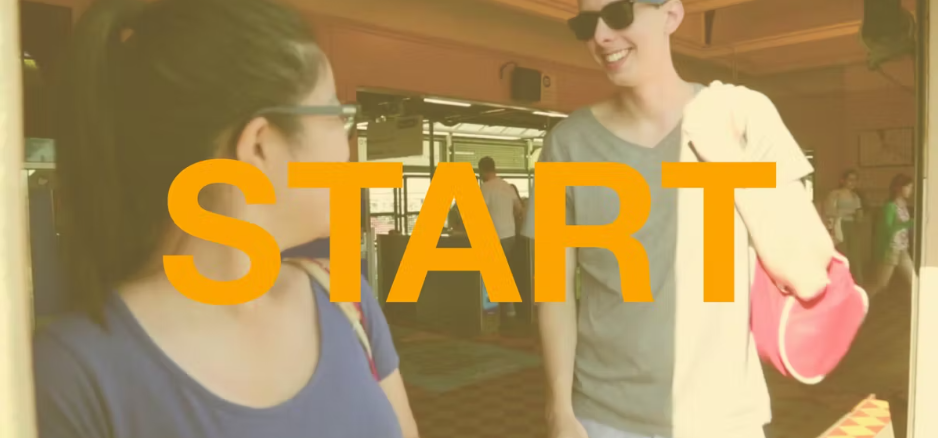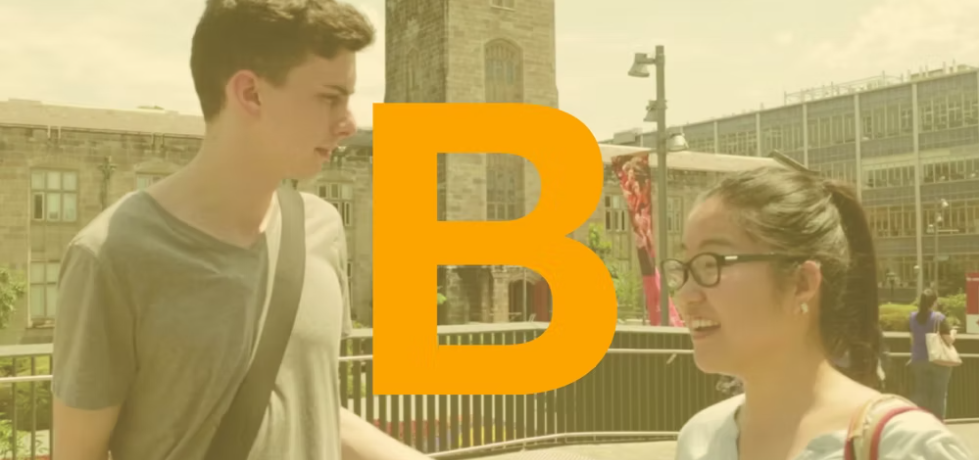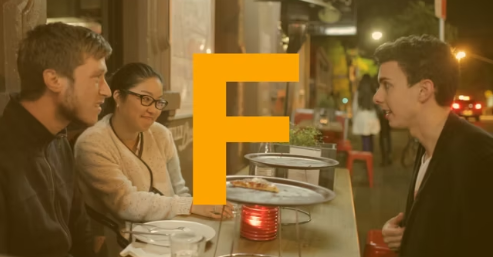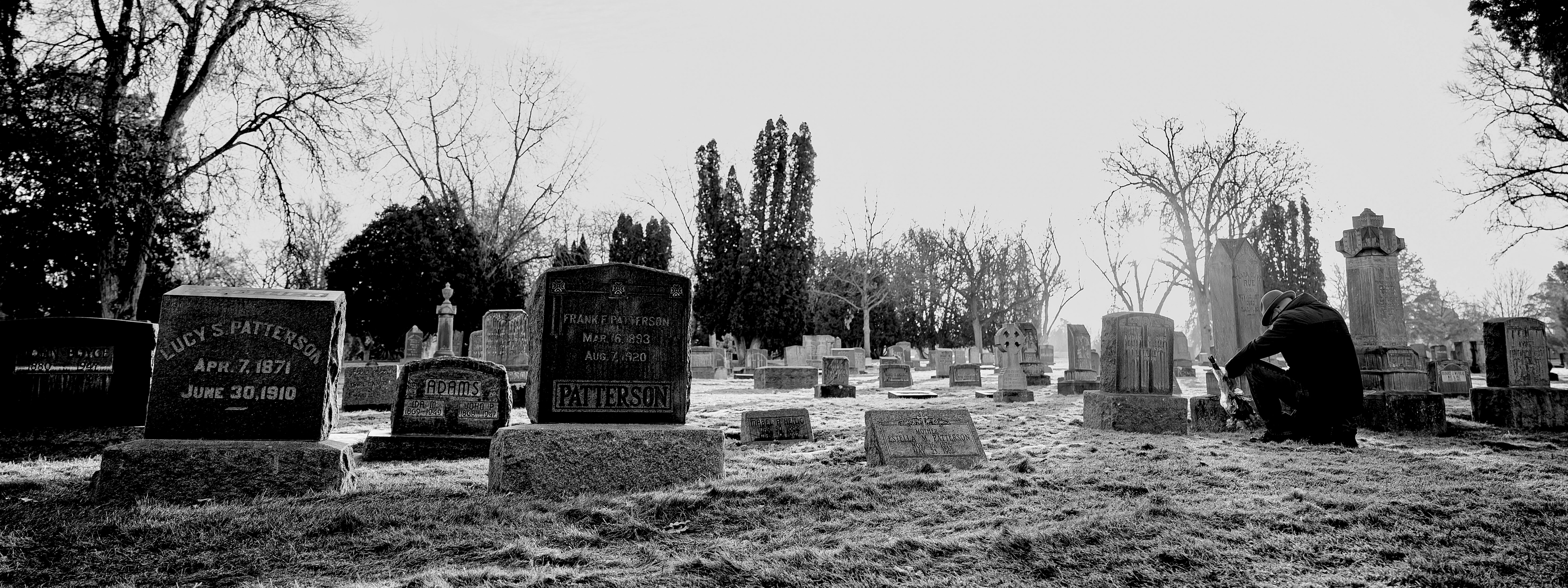Start Here
When you start reading Luke’s Gospel, it may feel like a strange new world. It’s easy to be put off. But the writer, Luke, reassures us right at the beginning that he has written a well-researched account of the life of Jesus Christ by talking to the eye witnesses.
The danger is that we write off the evidence because we presume certain things just are not possible.
Luke doesn’t want you to switch off your brain. He wants you to consider the evidence and make up your mind about Jesus. Who was he? What was his mission? Why did he have such an impact on people, especially those who had given up on the idea of God?
As the account begins we see two couples, both awaiting the birth of their first child. One sets the stage for the other. The second child is introduced as the Son of God. Witnesses testify, historical records are cited, angels speak. And from his own lips the 12-year-old child calls the temple of God, ‘my Father’s house’.
Read for yourself and make up your mind.
You will have lots of questions. Scribble them down and start interacting with the evidence.
This is the account of an extraordinary life. A profound life. One of scandal, passion, love, and sacrifice. A life that changed the world forever.
See for yourself
Below are five simple questions to help you consider what you’re reading in any part of this book. Conveniently, the main concept of each question begins with the letter ‘R’. So we refer to these questions with the very original term, “The 5R’s’.
Retell
Retell the narrative (and recap what’s come before).
Note anything that’s unclear or confusing.
React
How are people reacting to Jesus?
Reveal
What is revealed about Jesus (and those meeting him) through words and actions?
Reason
What reason might Luke have for including this event?
Respond
What does Luke teach us about how to respond to Jesus?
What to expect
Ever considered writing a PhD? Three years, research, research, research, finally write a long paper. The process is rigorous so that the best possible contribution to new knowledge is attained.
This Gospel is Luke’s PhD. He researched it across years, undertaking specific interviews that would give him access to what actually happened with Jesus. In his first paragraph, Luke reveals his purpose and his methodology. Here’s some questions to get you started.
- What words and phrases indicate how careful Luke was in his research?
(v2-3)
- How different is this to truth claims on social media?
- How is Luke’s purpose (v4) linked to his methodology?
- Luke considers he’s writing ‘more than history’. What’s the importance of the replacement word for ‘historical account’ in v1? Scan chapters 1-4 to see this idea in action.
Question to Ponder: Could Luke have interviewed this many people, or is this most likely a false claim?
Take a quick look at the book of Acts (also written by Luke):
- Read Acts 16:10 where Luke joins Paul and his companions for the journeys in the rest of Acts.
- What locations is Luke visiting?
- What people would Luke have had access to in these locations? (E.g. who could Luke have met to interview in Jerusalem?)
Based on this research to see for yourself, what have we discovered about the document you are about to read?
The 5Rs: Retell, React, Reveal, Reason, Respond
Luke 1:1-4
Introduction
Many have undertaken to draw up an account of the things that have been fulfilled among us, 2 just as they were handed down to us by those who from the first were eye witnesses and servants of the word. 3 With this in mind, since I myself have carefully investigated everything from the beginning, I too decided to write an orderly account for you, most excellent Theophilus, 4 so that you may know the certainty of the things you have been taught.
What to expect
We’re jumping straight into Luke’s eyewitness accounts of Jesus.
Here is the scene:Jesus was teaching in a house full of people. People from far and wide were there, including Pharisees (Jewish leaders of the time) and teachers of the law ‘from every village of Galilee and from Judea and Jerusalem’. It was so full that the friends of a paralysed man could not bring him into the house through the front door, but had to lower him in through the roof! Then Jesus did something totally odd that got the Pharisees and teachers of the law angry. What was the big deal?
The 5Rs: Retell, React, Reveal, Reason, Respond
Luke 5:17-26
Jesus forgives and heals a paralysed man
17 One day Jesus was teaching, and Pharisees and teachers of the law were sitting there. They had come from every village of Galilee and from Judea and Jerusalem. And the power of the Lord was with Jesus to heal those who were ill. 18 Some men came carrying a paralysed man on a mat and tried to take him into the house to lay him before Jesus. 19 When they could not find a way to do this because of the crowd, they went up on the roof and lowered him on his mat through the tiles into the middle of the crowd, right in front of Jesus.
20 When Jesus saw their faith, he said, ‘Friend, your sins are forgiven.’
21 The Pharisees and the teachers of the law began thinking to themselves, ‘Who is this fellow who speaks blasphemy? Who can forgive sins but God alone?’
22 Jesus knew what they were thinking and asked, ‘Why are you thinking these things in your hearts? 23 Which is easier: to say, “Your sins are forgiven,” or to say, “Get up and walk”? 24 But I want you to know that the Son of Man has authority on earth to forgive sins.’ So he said to the paralysed man, ‘I tell you, get up, take your mat and go home.’ 25 Immediately he stood up in front of them, took what he had been lying on and went home praising God. 26 Everyone was amazed and gave praise to God. They were filled with awe and said, ‘We have seen remarkable things today.’
What to expect
Jesus was invited to a dinner by a Pharisee named Simon. Others were there also, presumably as fellow dinner guests. According to Luke’s eyewitness account, one person who was definitely not invited, but turned up anyway, was a ‘woman who lived a sinful life’. She was most likely a prostitute. Simon did not hesitate to look down on her!
But then she did something humbling and remarkable – she washed Jesus’ feet with her tears, and dried them with her hair. She then poured perfume (the ‘anointing’) on Jesus feet! Simon voiced his disgust.
Jesus, as the recipient of such kindness, gave everyone in the room a quick lesson, and did another unexpected thing. What do you think is happening?
The 5Rs: Retell, React, Reveal, Reason, Respond
Luke 7:36-50
Jesus anointed by a sinful woman
36 When one of the Pharisees invited Jesus to have dinner with him, he went to the Pharisee’s house and reclined at the table. 37 A woman in that town who lived a sinful life learned that Jesus was eating at the Pharisee’s house, so she came there with an alabaster jar of perfume. 38 As she stood behind him at his feet weeping, she began to wet his feet with her tears. Then she wiped them with her hair, kissed them and poured perfume on them.
39 When the Pharisee who had invited him saw this, he said to himself, ‘If this man were a prophet, he would know who is touching him and what kind of woman she is – that she is a sinner.’
40 Jesus answered him, ‘Simon, I have something to tell you.’
‘Tell me, teacher,’ he said.
41 ‘Two people owed money to a certain money-lender. One owed him five hundred denarii, and the other fifty. 42 Neither of them had the money to pay him back, so he forgave the debts of both. Now which of them will love him more?’
43 Simon replied, ‘I suppose the one who had the bigger debt forgiven.’
‘You have judged correctly,’ Jesus said.
44 Then he turned towards the woman and said to Simon, ‘Do you see this woman? I came into your house. You did not give me any water for my feet, but she wet my feet with her tears and wiped them with her hair. 45 You did not give me a kiss, but this woman, from the time I entered, has not stopped kissing my feet. 46 You did not put oil on my head, but she has poured perfume on my feet. 47 Therefore, I tell you, her many sins have been forgiven – as her great love has shown. But whoever has been forgiven little loves little.’
48 Then Jesus said to her, ‘Your sins are forgiven.’
49 The other guests began to say among themselves, ‘Who is this who even forgives sins?’
50 Jesus said to the woman, ‘Your faith has saved you; go in peace.’
What to expect
Have you ever had a confronting moment where there’s no dressing up or tampering down, you just had to ‘tell it how it is’?
In this eyewitness account of Jesus, his disciples were asked a simple question: “Who do the crowds say I am?”. That doesn’t sound hard at all! The disciples had been with Jesus from the beginning so they would have heard lots of things said about Jesus.
But then Jesus asked them a very personal question: “Who do you say I am?”.
Who do you say Jesus is?
The 5Rs: Retell, React, Reveal, Reason, Respond
Who Am I?
Luke 9:18-27
Peter declares that Jesus is the Messiah
18 Once when Jesus was praying in private and his disciples were with him, he asked them, ‘Who do the crowds say I am?’
19 They replied, ‘Some say John the Baptist; others say Elijah; and still others, that one of the prophets of long ago has come back to life.’
20 ‘But what about you?’ he asked. ‘Who do you say I am?’
Peter answered, ‘God’s Messiah.’
Jesus predicts his death
21 Jesus strictly warned them not to tell this to anyone. 22 And he said, ‘The Son of Man must suffer many things and be rejected by the elders, the chief priests and the teachers of the law, and he must be killed and on the third day be raised to life.’
23 Then he said to them all: ‘Whoever wants to be my disciple must deny themselves and take up their cross daily and follow me. 24 For whoever wants to save their life will lose it, but whoever loses their life for me will save it. 25 What good is it for someone to gain the whole world, and yet lose or forfeit their very self? 26 Whoever is ashamed of me and my words, the Son of Man will be ashamed of them when he comes in his glory and in the glory of the Father and of the holy angels.
27 ‘Truly I tell you, some who are standing here will not taste death before they see the kingdom of God.’
What to expect
What is a parable? A parable is simply a story with a moral or spiritual lesson. Jesus used parables a lot in his teachings and Luke has diligently recorded them. We’ve actually encountered a parable already – back in Luke 7:36-50 when we read about Simon inviting Jesus over for dinner and an uninvited woman poured perfume on Jesus’ feet, Jesus told a story to Simon. The story Jesus told was a parable! Can you recall the parable?
In this passage, Luke’s eyewitness account has Jesus telling three parables. What’s the common theme of all three parables?
The 5Rs: Retell, React, Reveal, Reason, Respond
Luke 15:1-24
The parable of the lost sheep
Now the tax collectors and sinners were all gathering round to hear Jesus. 2 But the Pharisees and the teachers of the law muttered, ‘This man welcomes sinners, and eats with them.’
3 Then Jesus told them this parable: 4 ‘Suppose one of you has a hundred sheep and loses one of them. Doesn’t he leave the ninety-nine in the open country and go after the lost sheep until he finds it? 5 And when he finds it, he joyfully puts it on his shoulders 6 and goes home. Then he calls his friends and neighbours together and says, “Rejoice with me; I have found my lost sheep.” 7 I tell you that in the same way there will be more rejoicing in heaven over one sinner who repents than over ninety-nine righteous people who do not need to repent.
The parable of the lost coin
8 ‘Or suppose a woman has ten silver coins and loses one. Doesn’t she light a lamp, sweep the house and search carefully until she finds it? 9 And when she finds it, she calls her friends and neighbours together and says, “Rejoice with me; I have found my lost coin.” 10 In the same way, I tell you, there is rejoicing in the presence of the angels of God over one sinner who repents.’
The parable of the lost son
11 Jesus continued: ‘There was a man who had two sons. 12 The younger one said to his father, “Father, give me my share of the estate.” So he divided his property between them.
13 ‘Not long after that, the younger son got together all he had, set off for a distant country and there squandered his wealth in wild living. 14 After he had spent everything, there was a severe famine in that whole country, and he began to be in need. 15 So he went and hired himself out to a citizen of that country, who sent him to his fields to feed pigs. 16 He longed to fill his stomach with the pods that the pigs were eating, but no one gave him anything.
17 ‘When he came to his senses, he said, “How many of my father’s hired servants have food to spare, and here I am starving to death! 18 I will set out and go back to my father and say to him: Father, I have sinned against heaven and against you. 19 I am no longer worthy to be called your son; make me like one of your hired servants.” 20 So he got up and went to his father.
‘But while he was still a long way off, his father saw him and was filled with compassion for him; he ran to his son, threw his arms round him and kissed him.
21 ‘The son said to him, “Father, I have sinned against heaven and against you. I am no longer worthy to be called your son.”
22 ‘But the father said to his servants, “Quick! Bring the best robe and put it on him. Put a ring on his finger and sandals on his feet. 23 Bring the fattened calf and kill it. Let’s have a feast and celebrate. 24 For this son of mine was dead and is alive again; he was lost and is found.” So they began to celebrate.
What to expect
We’ve already encountered some tax collectors from the previous passage. They were there with other “sinners” listening to Jesus’ parables about the lost and found.
In Jesus’ time, tax collectors were Jewish people who collected tax from fellow Jews, on behalf of the Roman occupiers (non-Jews). Furthermore, they would help themselves to a decent slice of the tax!
But in this account, Jesus explained, again through a parable, that even someone as reviled as a tax collector can stand justified before God. How is that possible?
The 5Rs: Retell, React, Reveal, Reason, Respond
Have Mercy
Luke 18:9-14
The parable of the Pharisee and the tax collector
9 To some who were confident of their own righteousness and looked down on everyone else, Jesus told this parable: 10 ‘Two men went up to the temple to pray, one a Pharisee and the other a tax collector. 11 The Pharisee stood by himself and prayed: “God, I thank you that I am not like other people – robbers, evildoers, adulterers – or even like this tax collector. 12 I fast twice a week and give a tenth of all I get.”
13 ‘But the tax collector stood at a distance. He would not even look up to heaven, but beat his breast and said, “God, have mercy on me, a sinner.”
14 ‘I tell you that this man, rather than the other, went home justified before God. For all those who exalt themselves will be humbled, and those who humble themselves will be exalted.’
What to expect
We now come to a close encounter with a tax collector in Luke’s eye-witness account of Jesus. And not just any tax collector, Zacchaeus was a chief tax collector. You can imagine whatever resentment people had of tax collectors, it would have been even more towards Zacchaeus!
This is what we know about Zacchaeus from the account – he was short but was keen to see Jesus so he climbed a tree to get a better view.
But then Zacchaeus did something unexpected, something totally unheard of from a tax collector. Why would he do that? What changed in him?
The 5Rs: Retell, React, Reveal, Reason, Respond
Luke 19:1-10
Zacchaeus the tax collector
Jesus entered Jericho and was passing through. 2 A man was there by the name of Zacchaeus; he was a chief tax collector and was wealthy. 3 He wanted to see who Jesus was, but because he was short he could not see over the crowd. 4 So he ran ahead and climbed a sycamore-fig tree to see him, since Jesus was coming that way.
5 When Jesus reached the spot, he looked up and said to him, ‘Zacchaeus, come down immediately. I must stay at your house today.’ 6 So he came down at once and welcomed him gladly.
7 All the people saw this and began to mutter, ‘He has gone to be the guest of a sinner.’
8 But Zacchaeus stood up and said to the Lord, ‘Look, Lord! Here and now I give half of my possessions to the poor, and if I have cheated anybody out of anything, I will pay back four times the amount.’
9 Jesus said to him, ‘Today salvation has come to this house, because this man, too, is a son of Abraham. 10 For the Son of Man came to seek and to save the lost.’
What to expect
In movies, regardless of the genre, if the director wants to you pay particular attention to a plot point, they would very intentionally make it up close and personal, and slow the moment right down. The eye-witness account of Jesus here is as up close and personal as you can get.
In Luke’s account we see Jesus praying. What’s so significant about this moment that Luke thought it was important to record it so carefully?
The 5Rs: Retell, React, Reveal, Reason, Respond
Death
Luke 22:39-46
Jesus prays on the Mount of Olives
39 Jesus went out as usual to the Mount of Olives, and his disciples followed him. 40 On reaching the place, he said to them, ‘Pray that you will not fall into temptation.’ 41 He withdrew about a stone’s throw beyond them, knelt down and prayed, 42 ‘Father, if you are willing, take this cup from me; yet not my will, but yours be done.’ 43 An angel from heaven appeared to him and strengthened him. 44 And being in anguish, he prayed more earnestly, and his sweat was like drops of blood falling to the ground.
45 When he rose from prayer and went back to the disciples, he found them asleep, exhausted from sorrow. 46 ‘Why are you sleeping?’ he asked them. ‘Get up and pray so that you will not fall into temptation.’
What to expect
The time has come for Jesus’ crucifixion. The whole account by Luke has been leading to this moment. Luke picks up a great deal of details over seemingly unimportant things. From what we’ve seen so far, Luke has been methodical in his recording so nothing is “random”.
With this in mind, look for the different things said by people and work out why they are important.
The 5Rs: Retell, React, Reveal, Reason, Respond
Luke 23:32-49
32 Two other men, both criminals, were also led out with him to be executed. 33 When they came to the place called the Skull, they crucified him there, along with the criminals – one on his right, the other on his left. 34 Jesus said, ‘Father, forgive them, for they do not know what they are doing.’ And they divided up his clothes by casting lots.
35 The people stood watching, and the rulers even sneered at him. They said, ‘He saved others; let him save himself if he is God’s Messiah, the Chosen One.’
36 The soldiers also came up and mocked him. They offered him wine vinegar 37 and said, ‘If you are the king of the Jews, save yourself.’
38 There was a written notice above him, which read: this is the king of the jews.
39 One of the criminals who hung there hurled insults at him: ‘Aren’t you the Messiah? Save yourself and us!’
40 But the other criminal rebuked him. ‘Don’t you fear God,’ he said, ‘since you are under the same sentence? 41 We are punished justly, for we are getting what our deeds deserve. But this man has done nothing wrong.’
42 Then he said, ‘Jesus, remember me when you come into your kingdom.’
43 Jesus answered him, ‘Truly I tell you, today you will be with me in paradise.’
The death of Jesus
44 It was now about noon, and darkness came over the whole land until three in the afternoon, 45 for the sun stopped shining. And the curtain of the temple was torn in two. 46 Jesus called out with a loud voice, ‘Father, into your hands I commit my spirit.’ When he had said this, he breathed his last.
47 The centurion, seeing what had happened, praised God and said, ‘Surely this was a righteous man.’ 48 When all the people who had gathered to witness this sight saw what took place, they beat their breasts and went away. 49 But all those who knew him, including the women who had followed him from Galilee, stood at a distance, watching these things.
What to expect
Jesus has died and everyone’s just sad. They’ve been with Jesus for three years or so, witnessing everything that he had done and looking forward to the new kingdom that Jesus had been telling them. Then it all came crashing down with Jesus’ crucifixion.
But the crucifixion was not the end. Do you believe Jesus came back to life?
The 5Rs: Retell, React, Reveal, Reason, Respond
Luke 24:36-49
Jesus appears to the disciples
36 While they were still talking about this, Jesus himself stood among them and said to them, ‘Peace be with you.’
37 They were startled and frightened, thinking they saw a ghost. 38 He said to them, ‘Why are you troubled, and why do doubts rise in your minds? 39 Look at my hands and my feet. It is I myself! Touch me and see; a ghost does not have flesh and bones, as you see I have.’
40 When he had said this, he showed them his hands and feet. 41 And while they still did not believe it because of joy and amazement, he asked them, ‘Do you have anything here to eat?’ 42 They gave him a piece of broiled fish, 43 and he took it and ate it in their presence.
44 He said to them, ‘This is what I told you while I was still with you: everything must be fulfilled that is written about me in the Law of Moses, the Prophets and the Psalms.’
45 Then he opened their minds so they could understand the Scriptures. 46 He told them, ‘This is what is written: the Messiah will suffer and rise from the dead on the third day, 47 and repentance for the forgiveness of sins will be preached in his name to all nations, beginning at Jerusalem. 48 You are witnesses of these things. 49 I am going to send you what my Father has promised; but stay in the city until you have been clothed with power from on high.’




















